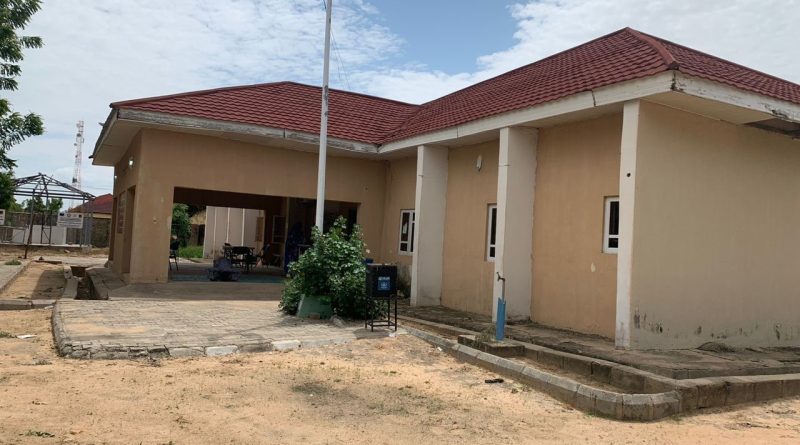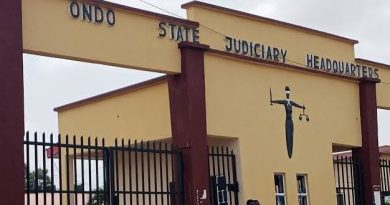When Communities Heal Together: The quiet revolution transforming mental healthcare in Nigeria’s conflict zones
It was a bright morning at a primary health centre in Jere Local Government Area of Borno State. Community Health Extension Workers (CHEWs) equipped with tablets and laptops were meeting with young people, their fingers moving across screens as they conducted mental health assessments using digital tools that are changing the landscape of care in this region.
Among the young people was YJK, a bright student whose life took a challenging turn after losing his father to Boko Haram violence as a toddler. Though he excelled academically, his behaviour had begun to change in recent years, withdrawing socially, staying out late, sleeping excessively, and watching his grades decline.
“Without this community screening, his condition might have remained undetected until it became far more severe,” explained Fatima Abba Ali, the consultant psychiatrist behind the Mentaccess project, which she upgraded and expanded as her reform project during her time as a participant in the AIG Public Leaders Programme.
The programme is a capacity-building initiative of the Aig-Imoukhuede Foundation facilitated by the Blavatnik School of Government, University of Oxford. “Instead, he was referred to the Federal Neuropsychiatric Hospital, diagnosed with social phobia and substance dependence, and received the treatment he needed,” Mrs Abba Alli recalled.
Today, YJK is thriving in school—one success story among the more than 29,000 children and adolescents screened through this initiative.
Catching them young
“Research consistently indicates that more than half of mental health disorders emerge during childhood or adolescence,” Mrs Abba Ali explained. “Borno State has endured over a decade and a half of security challenges, placing children and adolescents at the heart of this crisis.”
This reality formed the foundation of Mentaccess, which operates on a simple yet powerful premise: early intervention saves lives. “Why not catch them young?” she asked, a question that has become the project’s unofficial motto.
The methodology is innovative yet practical. At its core is a three-tier system that begins with community health workers conducting screenings using the Mentaccess digital tool—a mobile tool that enables real-time assessment of mental health conditions, even in areas with intermittent internet connectivity.
The power of community trust
This approach leverages existing community structures and trusted individuals to overcome long-standing barriers to mental healthcare.
“Previously, seeking help for mental health concerns was often a difficult journey marked by stigma and lack of awareness,” Mrs Abba Ali noted. “Individuals frequently explored numerous avenues, such as spiritual and traditional healers, often delaying or entirely missing appropriate care.”
The first tier of the Mentaccess system places community health workers—individuals already known and trusted within their communities—at the frontline of mental health detection. They use the digital screening tool to identify potential issues and provide basic care for mild cases, while referring to more complex situations up the care pathway.
For the second tier, specially trained Psychiatric Rehabilitation Providers deliver more intensive counselling. The third tier connects patients with psychiatrists at the Federal Neuropsychiatric Hospital Maiduguri, sometimes through teleconsultation services for those in remote areas.
Technology bridging the gap
The Mentaccess digital tool is an important innovation that can address the mental health service gap in rural communities. It enables real-time screening that guides non-specialist health workers in identifying mental health disorders.

“Worldwide, we are witnessing how digital tools are being used to better healthcare access,” Mrs Abba Ali said. “The Mentaccess digital tool allows operators to know the severity of cases, providing counselling and other basic psychological treatments for mild cases, and indicating cases that need referral to specialists.”
This tool has not been without challenges. In areas where internet connectivity is inconsistent, often due to ongoing security issues, real-time data collection can be delayed. The project has adapted by developing offline functionality and establishing physical referral networks when digital communication is not possible.
Cultural understanding as foundation
Perhaps the most delicate aspect of bringing mental health services to traditional communities is navigating cultural attitudes. Mrs Abba Ali spoke about her approach to this.
“We use indigenous healthcare workers who understand the nuances between various cultures in the state,” she explained. “Efforts were also made to establish relationships and understanding among community gatekeepers, such as traditional leaders, spiritual leaders, and institutional leaders.”
This cultural sensitivity extends to how mental health concepts are communicated. Rather than imposing external frameworks, the project identifies and encourages culturally healthy attitudes while gently discouraging stigmatising beliefs through awareness campaigns.
A message of hope
When asked about the most important message that needs to reach rural communities regarding mental health, Mrs Abba Ali was clear: “Mental health disorders, just like physical health illnesses, are treatable with appropriate treatment. People with mental health challenges should not be stigmatised, as it can happen to anyone.”
READ ALSO: 4,000 PHCs being renovated across Nigeria – Health Minister
She emphasised that mental health conditions arise from a complex interplay of biological, psychological, and social factors—from physical illness and psychological trauma to financial difficulties. This holistic understanding informs the project’s approach to treatment and prevention.
The Programme’s Impact
The AIG Public Leaders Programme, facilitated by the Blavatnik School of Government, University of Oxford, was instrumental in helping Mrs Abba Ali upgrade and implement the Mentaccess project. The programme, designed to support transformational public sector leaders, provided her with the resources, mentorship, and network needed to bring her vision to life.
“As an alumna of the AIG Public Leaders Programme, I was able to transform and upgrade the project to a more concrete reform that’s now changing thousands of lives,” Mrs Abba Ali said. “The programme’s emphasis on evidence-based approaches and sustainable solutions has been reflected in every aspect of Mentaccess.”
Looking Forward
Now operating in six local government areas in Borno State—MMC, Jere, Monguno, Chibok, Mafa, and Biu—the Mentaccess project demonstrates how innovative approaches can transform mental healthcare delivery even in the most challenging environments.
The project is now expanding to include school-based interventions, training teachers to recognise early signs of mental health issues in their students.
Though this component is still in its early stages, Mrs Abba Ali is optimistic about its potential impact.
Be part of the solution
Mental health challenges do not exist in isolation, and neither do their solutions. As Mrs Abba Ali’s work demonstrates, community involvement is essential for creating sustainable change.
Here’s how you can contribute to better mental health outcomes in your community:
1. Learn to recognise signs of mental health challenges in children and young people
2. Speak openly about mental health to reduce stigma
3. Create safe spaces where children and adolescents feel comfortable discussing their feelings
4. Support community initiatives that promote mental well-being
Mental health is everyone’s business. In Mrs Abba Ali’s words: “Communities are an important part of social support and have an important role in the promotion of mental health.”
This feature is part of our Mental Health Awareness Week campaign, highlighting innovative approaches to community mental health support. The AIG Public Leaders Programme, facilitated by the Blavatnik School of Government, University of Oxford, supports transformational public sector leaders like Mrs Abba Ali, who are creating practical solutions to Nigeria’s healthcare challenges.
Support PREMIUM TIMES’ journalism of integrity and credibility
At Premium Times, we firmly believe in the importance of high-quality journalism. Recognizing that not everyone can afford costly news subscriptions, we are dedicated to delivering meticulously researched, fact-checked news that remains freely accessible to all.
Whether you turn to Premium Times for daily updates, in-depth investigations into pressing national issues, or entertaining trending stories, we value your readership.
It’s essential to acknowledge that news production incurs expenses, and we take pride in never placing our stories behind a prohibitive paywall.
Would you consider supporting us with a modest contribution on a monthly basis to help maintain our commitment to free, accessible news?
Make Contribution
TEXT AD: Call Willie – +2348098788999







